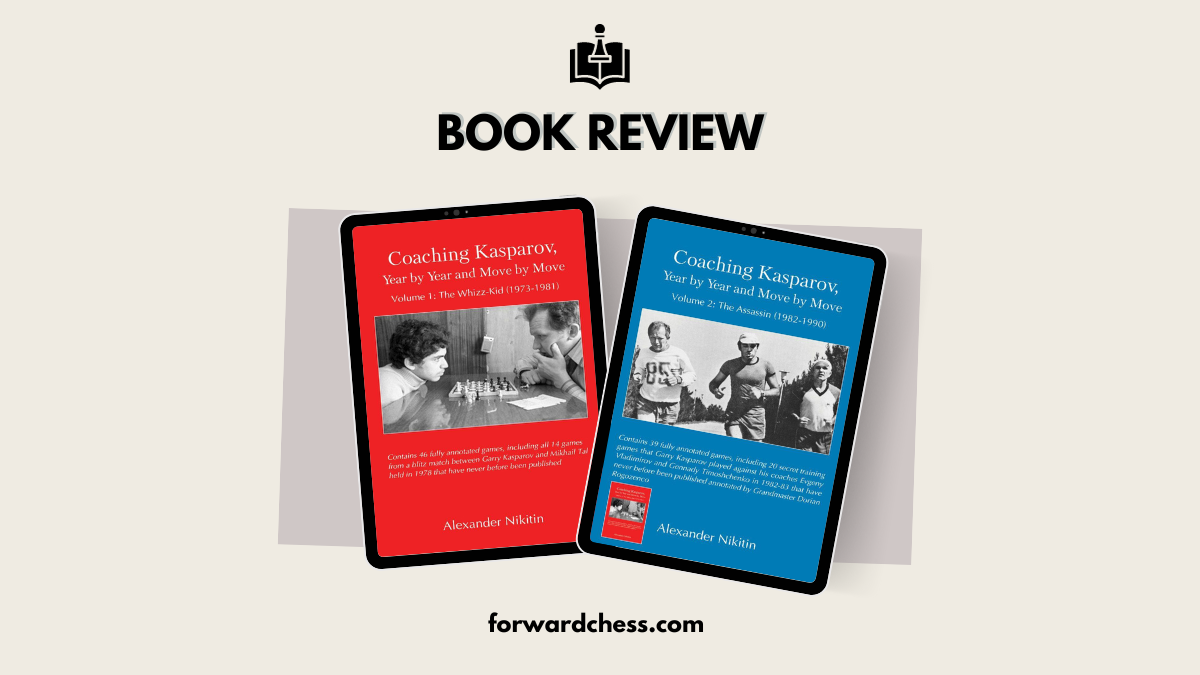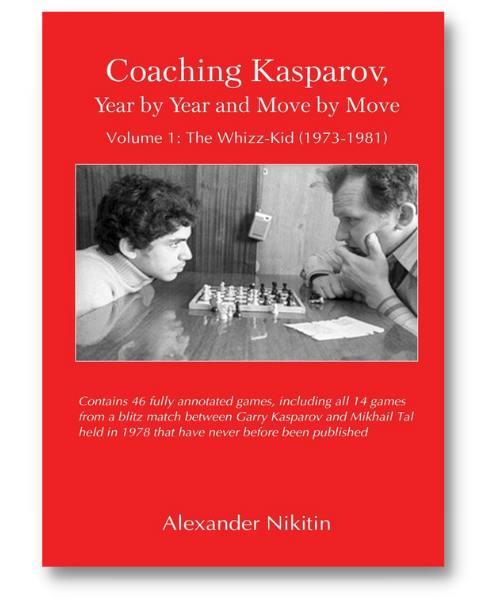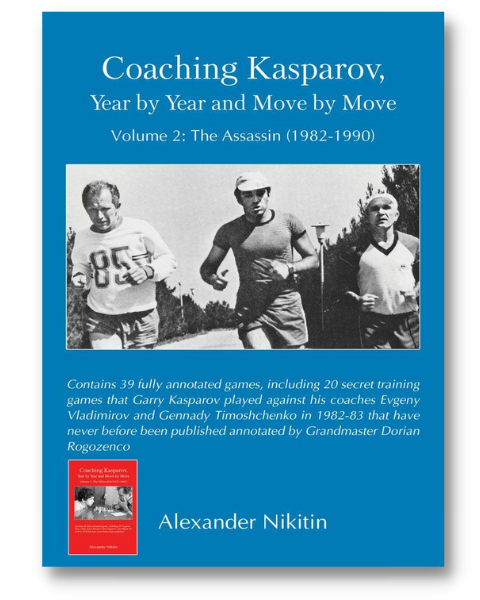Book Review of Coaching Kasparov – Volumes 1 and 2
“I promised to knock Karpov off his throne.”
– Alexander Nikitin
Who is the greatest player ever to play chess? This question is guaranteed to generate endless discussions and heated debates. Regardless of your nomination for this honor, there is no doubt that Garry Kasparov has a very strong claim to this title. His legendary and illustrious career has been discussed at length in many books by Kasparov himself and by other authors.
The two volumes discussed in this review, Coaching Kasparov: Volume 1 and Coaching Kasparov: Volume 2, present a very different perspective of his career since they are written by his former coach, Alexander Nikitin, who was instrumental in Kasparov’s successful drive to the world championship. It can be argued that this was the most successful coaching partnership in chess, and yet, as the above quote shows, it may not have happened except for the very human emotion of seeking revenge.
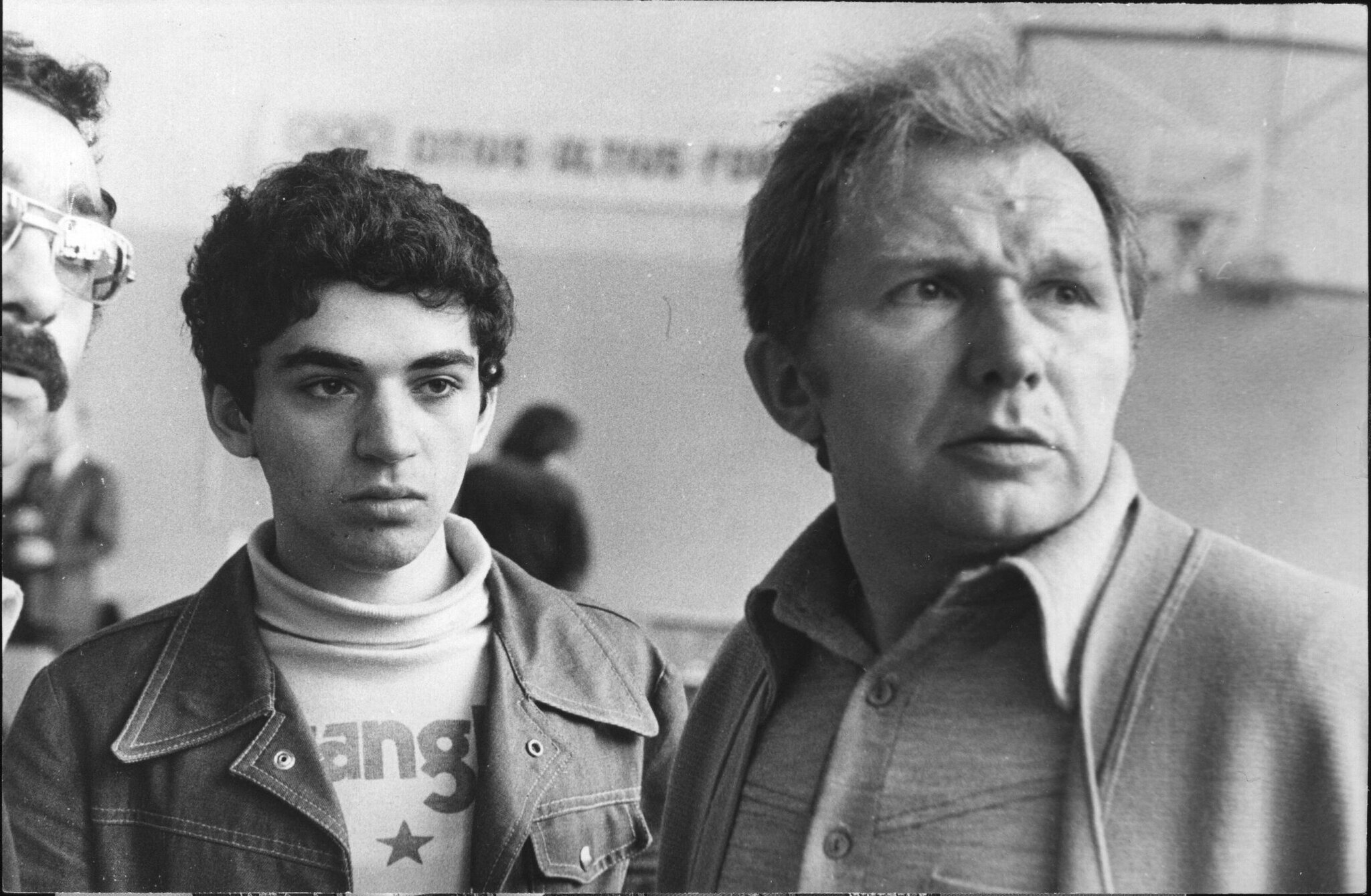
Nikitin fell out with Karpov in 1979 and was sacked from his coaching position. He was determined to seek revenge, and this spurred him to put all his efforts into ensuring that Kasparov, then only sixteen years old, would eventually defeat Karpov and become World Champion. The books describe how Nikitin took a talented junior and made him into a champion, thereby exacting revenge on Karpov. The Kasparov-Nikitin partnership lasted seventeen years and finally ended in 1989, at the time of the world championship match in Seville. Hence, Nikitin saw Kasparov through most of the epic ‘K-K’ rivalry that dominated the chess world in the 1980s. About the end, Nikitin writes “He started to find my influence a burden, and our mutual understanding quickly decreased.” He also writes “I am proud that I kept my promise and achieved my aim.” Revenge was obviously very sweet for Nikitin.
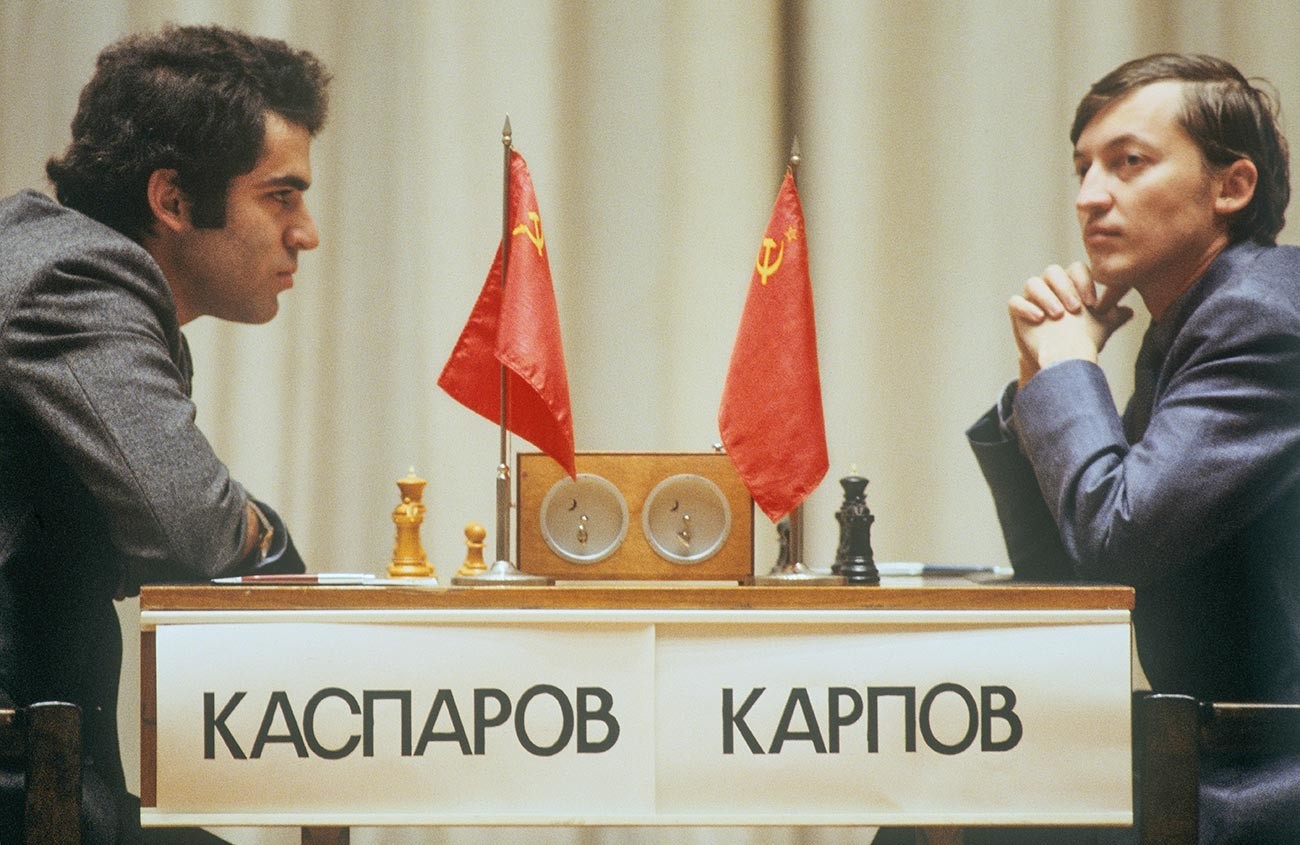
The books give a detailed account of how Kasparov rose to the top from a coach’s perspective, and they complement Kasparov’s books on his career. Although the chess aspects dominate, the personal and political issues are also extensively discussed, including Kasparov’s change in surname for political reasons and the influential role of his mother throughout his career. The political intrigues are particularly well-covered, and they provide a vivid picture of the harsh reality of life in the former Soviet Union, where the State dictated most aspects of daily life, and favors were bestowed on only the chosen few. The account of the Kasparov family’s escape from war-torn Baku in 1990 reads like the plot of a World War 2 movie, and the family was very lucky to have State support for the evacuation.
The books also contain over 80 annotated games that cover the period 1972 – 1989. These games provide a detailed account of Kasparov’s development from a raw junior to a mature world champion. The annotations provide a good insight into the critical aspects of the games, and they also give the background to the games. Some of these games, such as the informal Kasparov-Tal blitz match in 1978, were originally published for the first time in these books. Some games also include the time the players spent on their moves, and this provides an interesting insight into how quickly top players make decisions at the chessboard.
Two examples from the books are given below, with annotations from the books.
Coaching Kasparov: Example 1
Coaching Kasparov: Example 2
In summary, the books provide a fascinating account of Nikitin’s successful coaching career with Kasparov. They can be read either as individual books or as complements to Kasparov’s writings about the same period.
Have any thoughts or questions? Let us know in the comments!
For a limited time, get Coaching Kasparov: Volume 1 and Coaching Kasparov: Volume 2 with a special 10% discount offer at forwardchess.com.
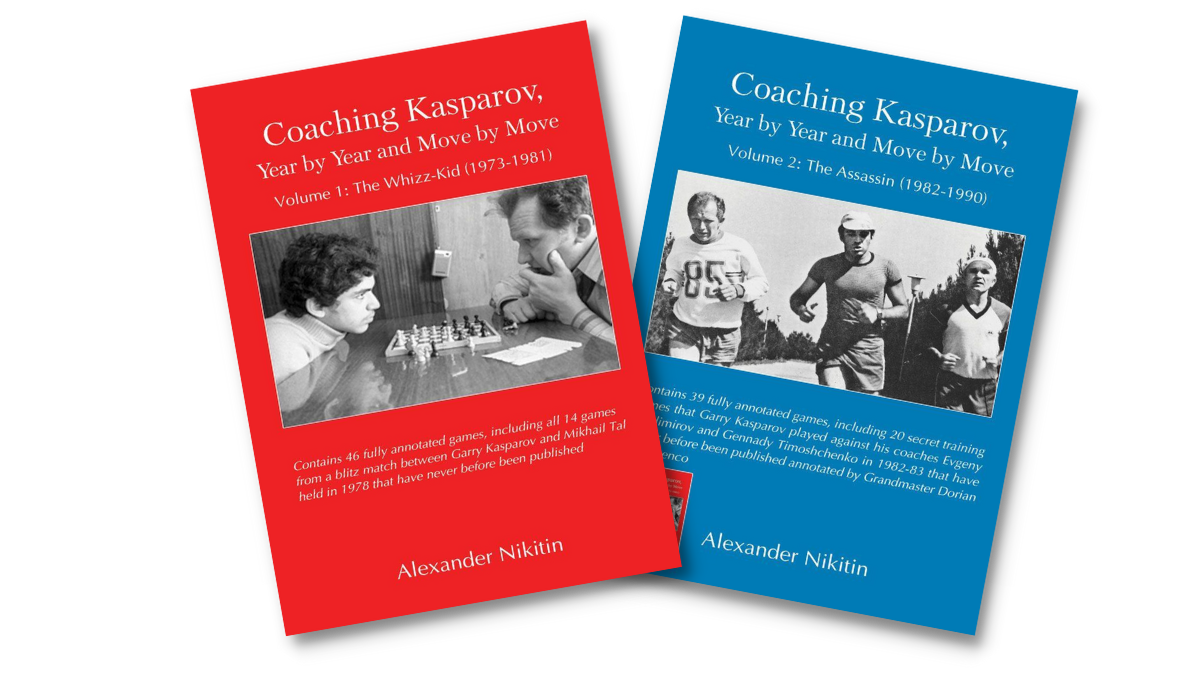
- New Release: Chess Analysis – Reloaded - March 9, 2024
- Review: The Art of The Endgame – Revised Edition - February 14, 2024
- Review: Study Chess with Matthew Sadler - December 13, 2023
